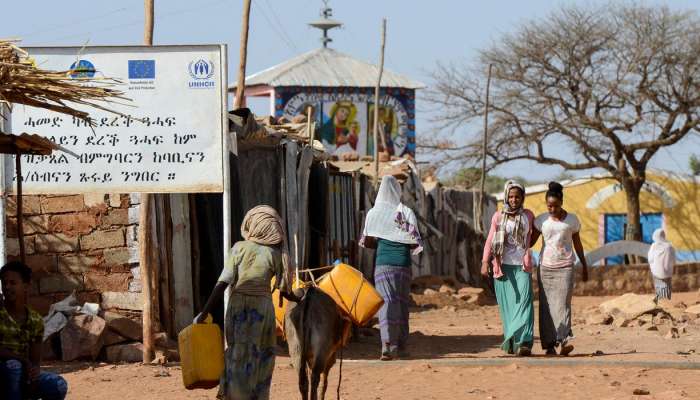
Tigray: Eritrean forces were seen withdrawing from towns in the northern Ethiopian region of Tigray, where they had been fighting alongside Ethiopia's government troops against rebels.
A cease-fire agreed upon in November brought calm to the restive region after a nearly two-year war.
The agreement included the disarmament of the Tigray People's Liberation Front (TPLF). The TPLF rebels called for the withdrawal of troops from Eritrea, but some Eritrean fighters remained deployed throughout the area.
The United States and the European Union had also urged Eritrea to pull back its troops.
Media reports published Sunday quoted local residents as saying that convoys of Eritrean troops had been leaving the towns of Shire and Adwa. The claim could not be independently verified due to the limited access to Tigray.
US Secretary of State Antony Blinken said he spoke with Ethiopian Prime Minister Abiy Ahmed about the "ongoing withdrawal" of Eritrean forces, calling the pullout a "significant progress."
"[Blinken] welcomed this development, noting that it was key to securing a sustainable peace in northern Ethiopia, and urged access for international human rights monitors," State Department spokesman Ned Price said in a statement.
The Tigray war
In November 2020, the conflict erupted when Abiy deployed the army to arrest Tigrayan leaders who had challenged his authority.
Abiy accused the TPLF of attacking federal military bases and unleashed a major offensive against the group. The conflict escalated and the rebel group at times appeared to be threatening the Ethiopian capital, Addis Ababa.
The Ethiopian prime minister, who had won the Nobel Peace Prize in part for reconciling with Eritrea, had denied that Eritrean troops were involved in the conflict for months. He only admitted their presence in March 2021.
The two-year conflict has been called by rights groups "one of the deadliest in the world," although the exact toll of the war remains unknown.